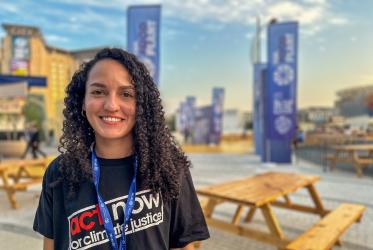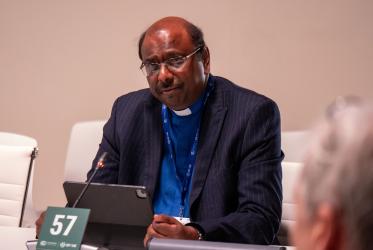Mostrando 1 - 20 de 154
17 Abril 2024
Compendium of Promising Practices of African Faith Community Interventions against Paediatric and Adolescent HIV
Executive Summary
23 Marzo 2024
What can churches do to prevent modern slavery?
22 Febrero 2024
Ellyanne Chlystun-Githae Wanjiku to COP28: “listen more to children”
13 Diciembre 2023
At COP28, WCC general secretary hopes for “less talk and more walk”
01 Diciembre 2023










